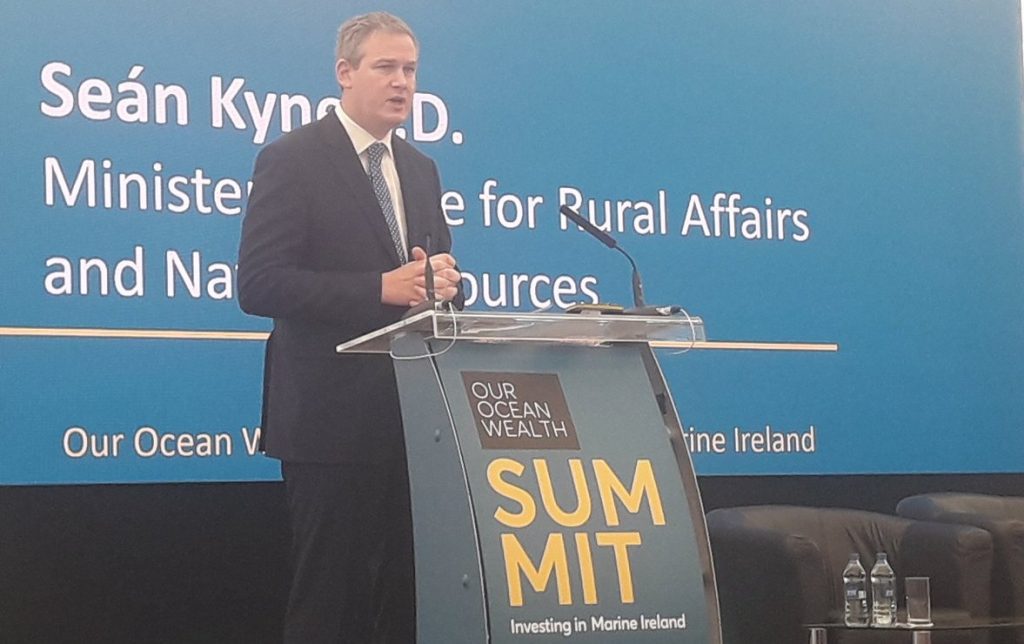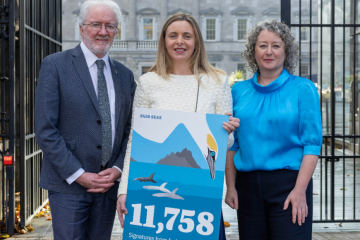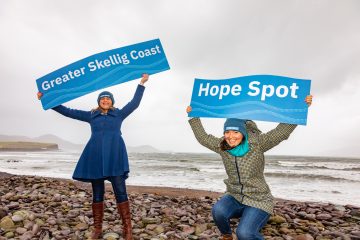Ireland is leading the Blue Economy, NUI Galway report finds

June 2nd, 2018
Investment in the marine sector may help Ireland to double the value of its ocean wealth to 2.4 per cent by 2030 and increase the ocean economy’s turnover to exceed €6.4 billion by 2020, a new report has found.
Launched at the fifth annual Our Ocean Wealth Summit last week, the report from NUI Galway’s Socio-Economic Marine Research Unit (SEMRU) outlines the latest figures on Ireland’s ocean economy at the summit, valued at €1.97 billion last year.
The report points to an increase in value of 21 per cent since 2015. This growth suggests, the report finds, that the country’s blue economy is growing faster than its general economy.
Dr Stephen Hynes, SEMRU director said that the recent growth is “driven by strong performances” in the aquaculture, sea fisheries, shipping and marine tourism industries.
The report shows that Ireland intends to double the value of its Ocean wealth to 2.4 per cent by 2030 and increase the ocean economy’s turnover for it to exceed €6.4 billion by 2020.
According to the recently updated figures, SEMRU confirmed a €5.5 billion turnover in 2017. In addition, 32,500 job opportunities were provided by the ocean economy.
The report shows that marine industries had a turnover of €398 million, providing more than 2,000 full-time jobs.
Professor Alan Ahearne, Director of the Whitaker Institute at NUI Galway, said that: the ocean economy has made a “significant contribution to Ireland’s overall economic recovery”.
“With our vast ocean resources, technological knowledge and innovation talent, there is huge potential for further sustainable growth in Ireland’s Blue Economy,” he added.

Minister for Natural Resources SeanKyne TD addresses the Our Ocean Wealth Summit Photo: DCCAE
Government support for drilling
During the summit, the Minister of State for Natural Resources, Seán Kyne, TD outlined the Government’s support for an increase in drilling.
Offshore oil and natural gas can deliver energy security and be a “very significant economic driver,” he said, adding his scepticism about emissions reductions under the Climate Emergency Measures Bill.
“A blanket ban will bind us to only importing our oil or natural gas needs and do little to help meet climate targets,” he said.
His comments encouraged strong reproach from environmental and civil society groups, such as Stop Climate Chaos.
“More licences for drilling means more oil and gas which means locking in more fossil fuel infrastructure and usage preventing greater investment in renewables,” said the civil society coalition.
“Oil wells produce toxic chemicals. Not good news for our oceans or our valuable fishing industry,” added the campaign group Not Here Not Anywhere.
[x_author title=”About the Author”]







